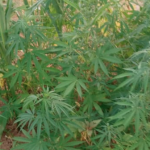The Ministry of Health plans to open five additional fistula repair centers by 2025 and train more surgeons, shifting away from performing surgeries on women with the condition in medical camps.
Dr. Edward Serem, Head of the Division of Reproductive and Maternal Health, stated that these new centers will increase the total number of fistula repair centers in the country to 15, while the number of trained surgeons will also rise from 10.
Dr. Serem acknowledged that although medical camps have been beneficial, they are not effective in the long term because women return home without a designated health facility for follow-up care.
This initiative aims to provide continuous and specialized care for women suffering from fistula, ensuring better outcomes and ongoing support.
“Some of the women later experience post-operation infections, which can result in death or prolonged stay in the hospital; if any operations are done in medical camps, we will ensure that the women are attached to a facility for regular check-up, but the ultimate goal is to facilitate fistula repairs continuously and avoid waiting for fistula camps,” Dr Serem said.
Fistula, an injury caused during childbirth, leads to leakage of urine and sometimes stool. In Kenya, approximately 3,000 women develop obstetric fistula annually, and about 24,000 women need corrective surgeries to cure the incontinence it causes.
However, only 2,000 women received treatment in 2021, according to the Global Fistula Map, due to the limited number of trained surgeons—just 10 with specialized skills for fistula repair.
To address this backlog, the Ministry of Health is engaging with partners to enhance the resources allocated for obstetric fistula treatment.
Dr. Edward Serem highlighted that the government’s efforts include opening five new fistula repair centers by 2025 and training more surgeons, moving away from the less effective medical camps where follow-up care is difficult.
In response to the government’s initiative, Jhpiego, a John Hopkins affiliate, supported the establishment of the Fistula Centre at Makueni County Referral Hospital through the Obstetric Fistula Kenya project.
Gynocare, an Eldoret-based center accredited by the International Federation of Gynecology and Obstetrics (FIGO) and the World Federation of Societies of Anesthesiologists (WFSA), trained a surgical team that now provides services in Makueni.
The project also trained nurses in screening for obstetric fistula within 10 facilities offering comprehensive emergency obstetric and newborn care.
Dr. Daisy Ruto, a gynecologist and the Director of Obstetric Fistula Kenya, emphasized that the project supports not only the training of surgeons but also a comprehensive surgical team including anesthetists, physiotherapists, nutritionists, counselors, and nurses to ensure holistic and rehabilitative care for patients.
Dr. Dorris Mbithi, the lead surgeon trained at the center, has treated patients from nine counties, including Tharaka Nithi and Mombasa. She pointed out that surgery is only part of the care that these women need, underscoring the importance of a multidisciplinary approach to their treatment and rehabilitation.
“Because they would avoid eating or drinking water to limit soiling themselves, most of these women are so malnourished we often even have to allow time for nutritionists for their diet before they can even have the operation,” Dr Mbithi explained.



